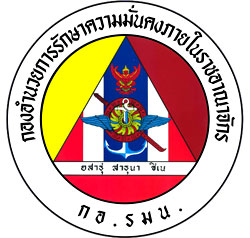Is Isoc on the right track in the far South?
 The Internal Security Operations Command (Isoc) is on the right track to solve the protracted unrest problem in the deep South, according to an evaluation report of the performance of the security agency in the past several years.
The Internal Security Operations Command (Isoc) is on the right track to solve the protracted unrest problem in the deep South, according to an evaluation report of the performance of the security agency in the past several years.
The evaluation was based on Isoc’s performance in the implementation of strategies in the following aspects:
- promotion of better understanding on identity problem and eradication of all forms of injustice;
- development of capability of human resources and improvement of livelihood;
- prevention and suppression of insurgency;
- improvement of human rights condition to prevent the situation in the deep South to be regionalized or internationalized;
- promotion of safety in life and property;
- promotion of participation of all stake-holders.
Isoc is satisfied to a certain extent that the unrest problem in the three southernmost provinces was not regionalized or internationalized. Violent incidents are declining and the number of villages that resist violence has increased from 22 in 2009 to 32 a year afterward. Also, there have been no public protests against the military for the past couple of years while local residents have become more cooperative with the authorities as evidenced in the increasing number of public alerts about suspected bombs. Household income has increased.
Although violent incidents surged during the first three months of this year, Isoc believes that these were merely a desperate attempt by the insurgents to hit back at security forces in retaliation against the military’s success in winning more support among the local inhabitants.
As for political approach to address the unrest problem, not only Isoc but also the police have been active in staging public forums to allow all stakeholders to voice their views on unrest and other problems in the deep South.
In a recent interview with Mr Danai Ekmahasawat, news host of Spring News television station, Deputy Interior Minister Thavorn Senniam said that the violent incidents which took place since the beginning of this year were not an indication that the government has failed in its attempt to contain the insurgency problem. He insisted that the situation has not worsened but, instead, has improved considerably.
"The number of violent incidents has dropped, the number of people killed and wounded has also reduced. In the meantime, the quality of life of people in general has improved," said Mr Thavorn, adding that the only headache for the government is that there are still people who believe in separatism.
The Democrat minister categorically rejected the idea of a special administrative zone for the three southernmost provinces saying that the idea is non-negotiable "because Thailand is a sovereign state which is inseparable".
Earlier, the opposition Puea Thai party has proposed a draft bill seeks to establish a special administrative body for the deep South to be called Nakhon Pattani. The idea is the brainchild of General Chavalit Yongchaiyudh, former prime minister and former chairman of the Puea Thai party.
The bill appears to be in the limbo now that General Chavalit has quit Puea Thai party.
-------------------------------------------------------------------------------------------------------
Caption : Logo of ISOC
